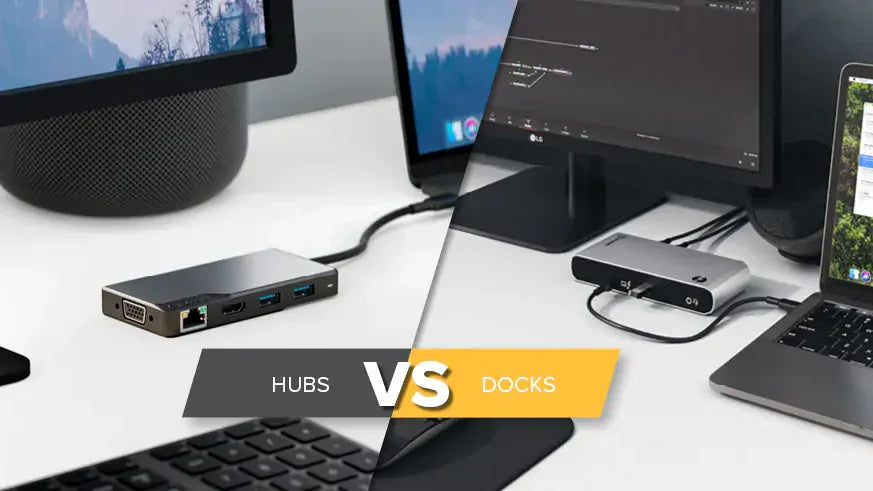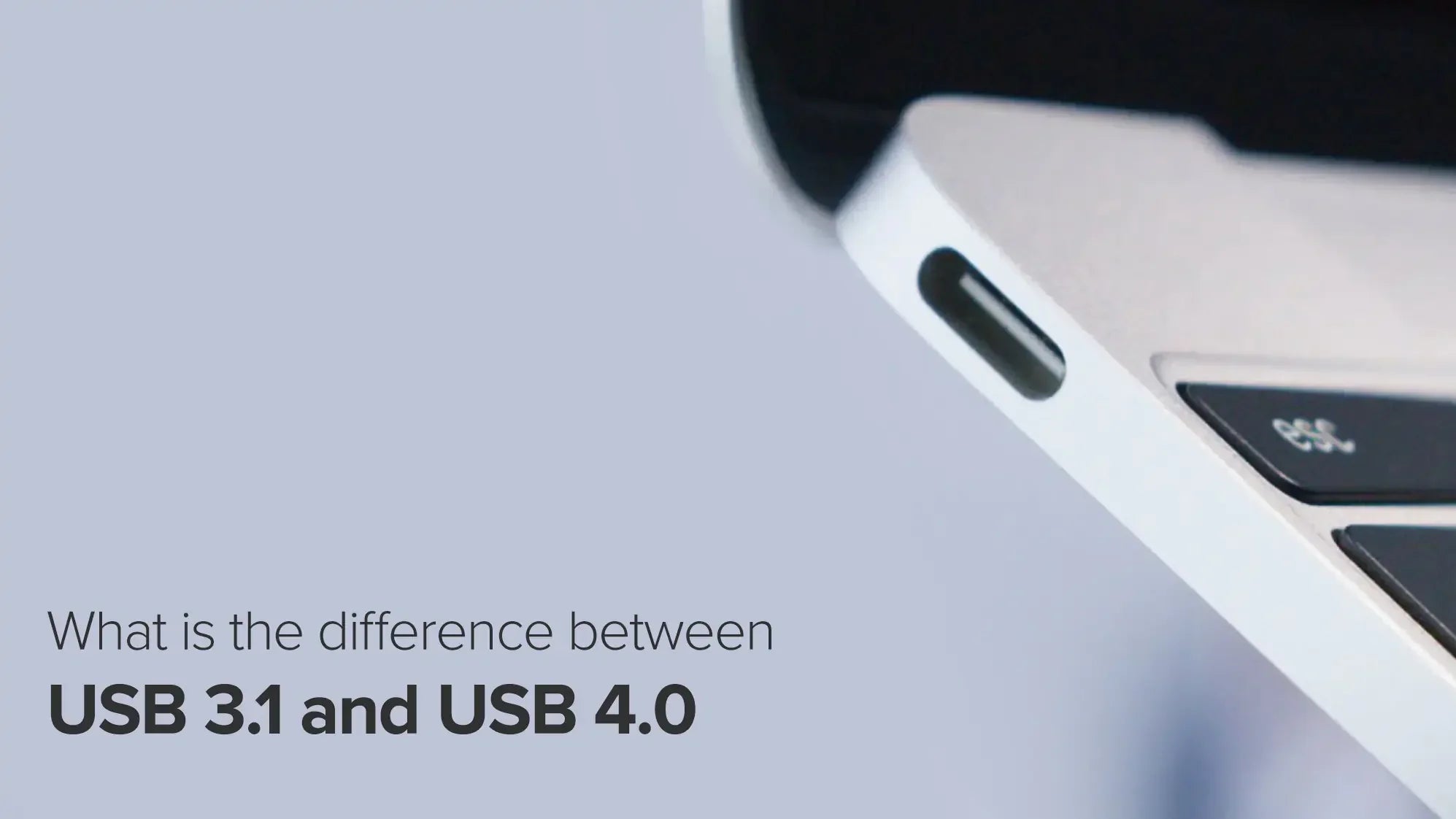You might have frequently heard the words Hubs and Docks, majority of the times they are used interchangeably.
Practically, it is a difficult task to find differences between the two as they are very similar in their functionality and looks. Despite this, each of them is unique in their own ways and have their individual importance.
However, we have few pointers that would help you differentiate between a Docking Station and a Hub:
What is a Docking Station?
A docking station is a workstation which provides connection to your laptop. If you have a laptop at your workplace and constantly need to connect it with other devices to add a larger screen, keyboard, printer, etc, then docking station is the perfect solution for you. You need to connect your docking station to all the external devices and whenever you feel like converting your laptop to a complete workstation, simply connect it to the docking station.
In simple terms, the cable converters that require mains power are also docking stations. The Docking station can support a wide variety of connections ranging from DisplayPort, Mini DisplayPort, HDMI, DVI, VGA or even Gigabit Ethernet, Audio connections, SD card readers, etc.
What is a Hub?
Nowadays, Laptop comes with very limited connectivity for input ports, it becomes difficult to connect multiple devices to it. The simplest available solution is the Hub.
The Hub basically works a spitter that lets you plug more devices into a given port, especially the USB-A and USB-C ports, or an Ethernet port for wired Internet connection.
You can check out the examples of Docking stations and Hubs from ALOGIC to understand more:

1. Our Thunderbolt 4 Blaze Docking Station includes and requires a 135W external power adapter, which allows it to charge your laptop and connected accessories.

2. Our Thunderbolt 4 Blaze Hub provides the same core functionality, albeit with fewer ports. However, it can operate without an external power source. When doing so, it can't charge your laptop and accessory ports may be disabled, such as USB-C.
In short: docking stations generally include a power adapter, support faster laptop charging and more ports, making them a more powerful companion for your laptop.
Hubs offer more flexibility, since they can operate without external power, which makes them more portable, at the cost of some capabilities.

 USA
USA
 Canada
Canada Australia
Australia UK
UK Europe
Europe New Zealand
New Zealand Japan
Japan Singapore
Singapore UAE
UAE India
India




Leave a comment
This site is protected by hCaptcha and the hCaptcha Privacy Policy and Terms of Service apply.